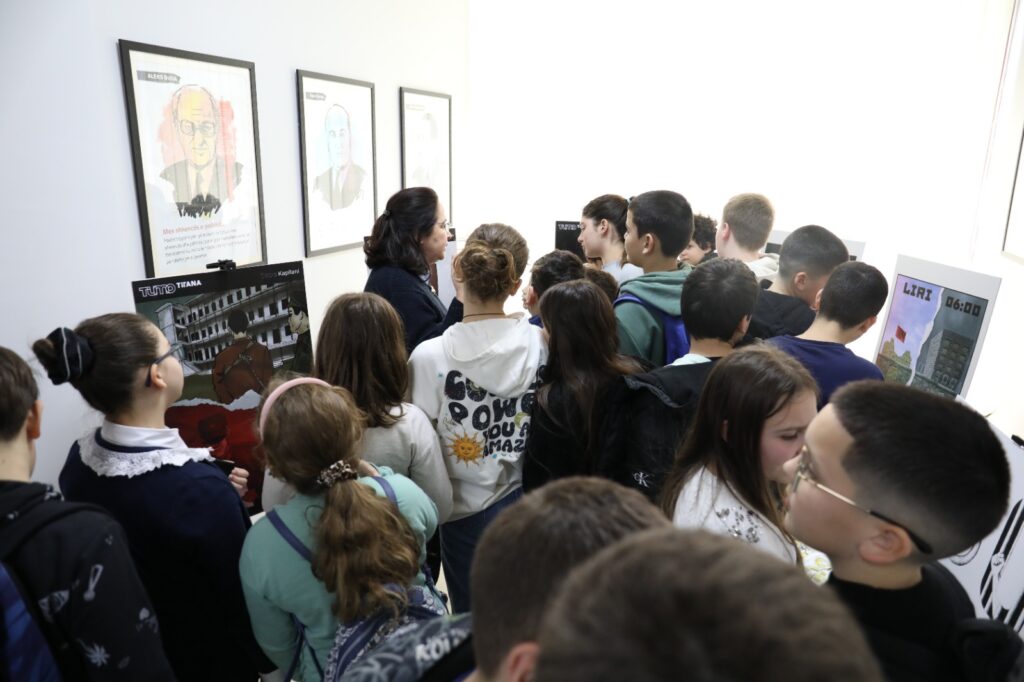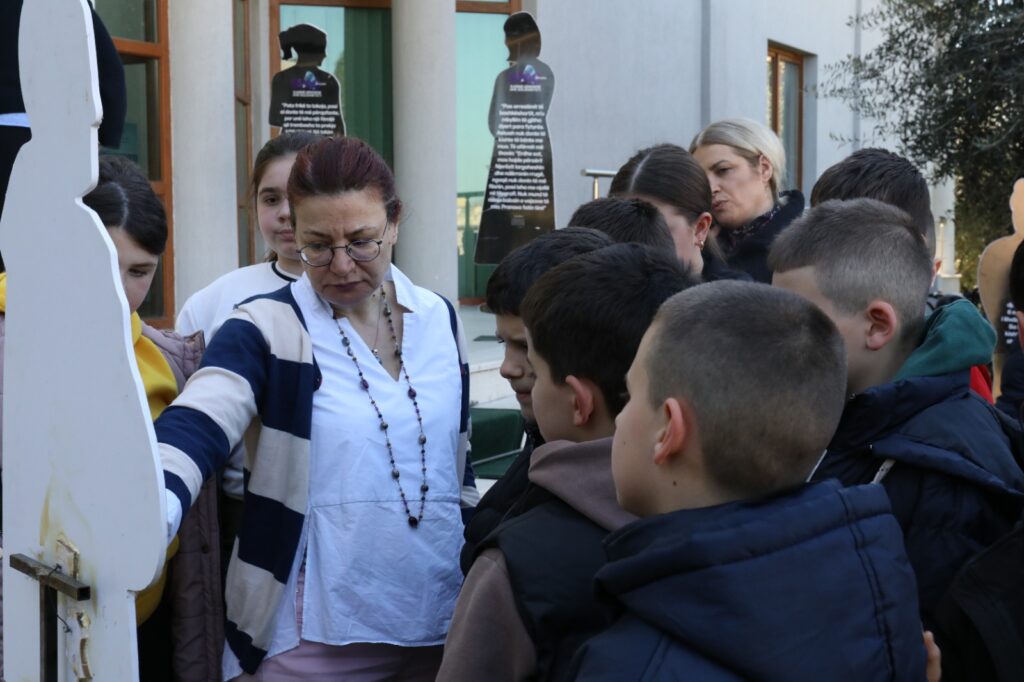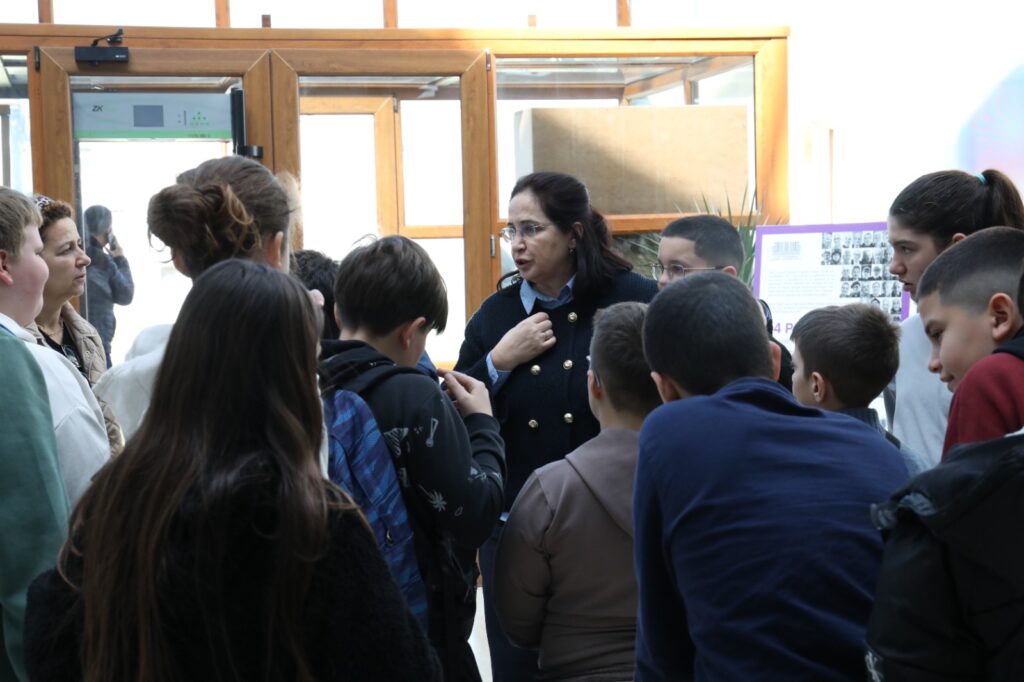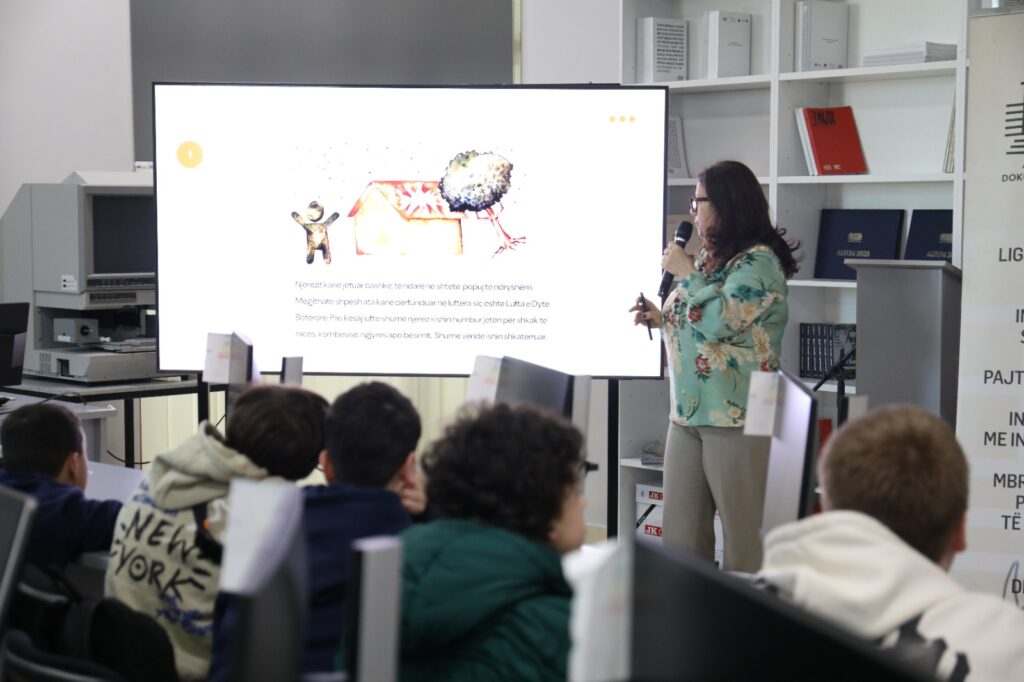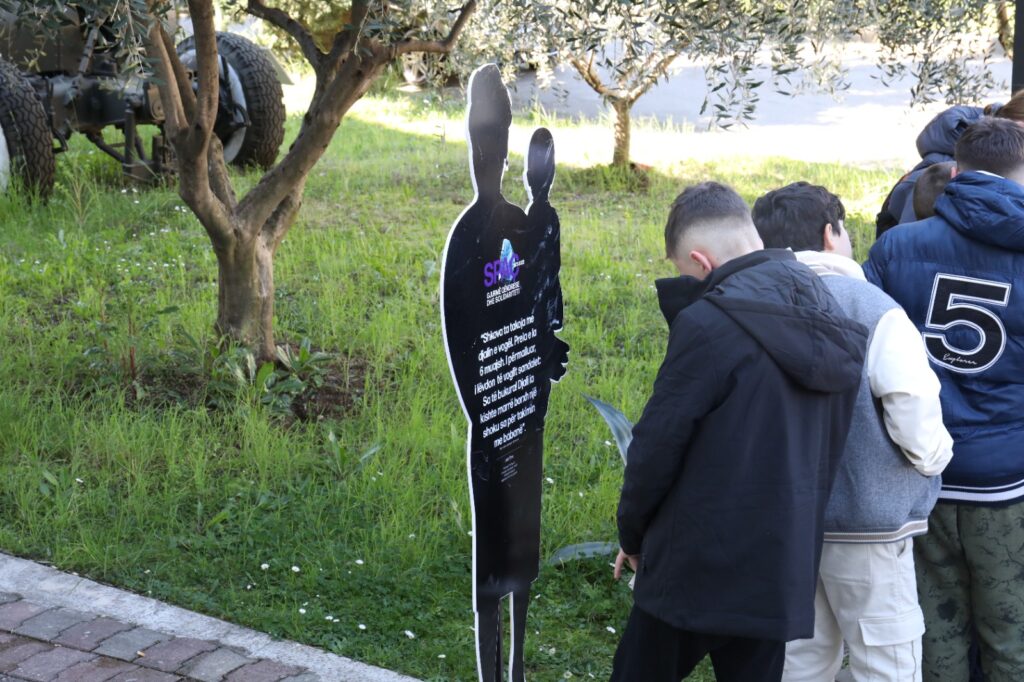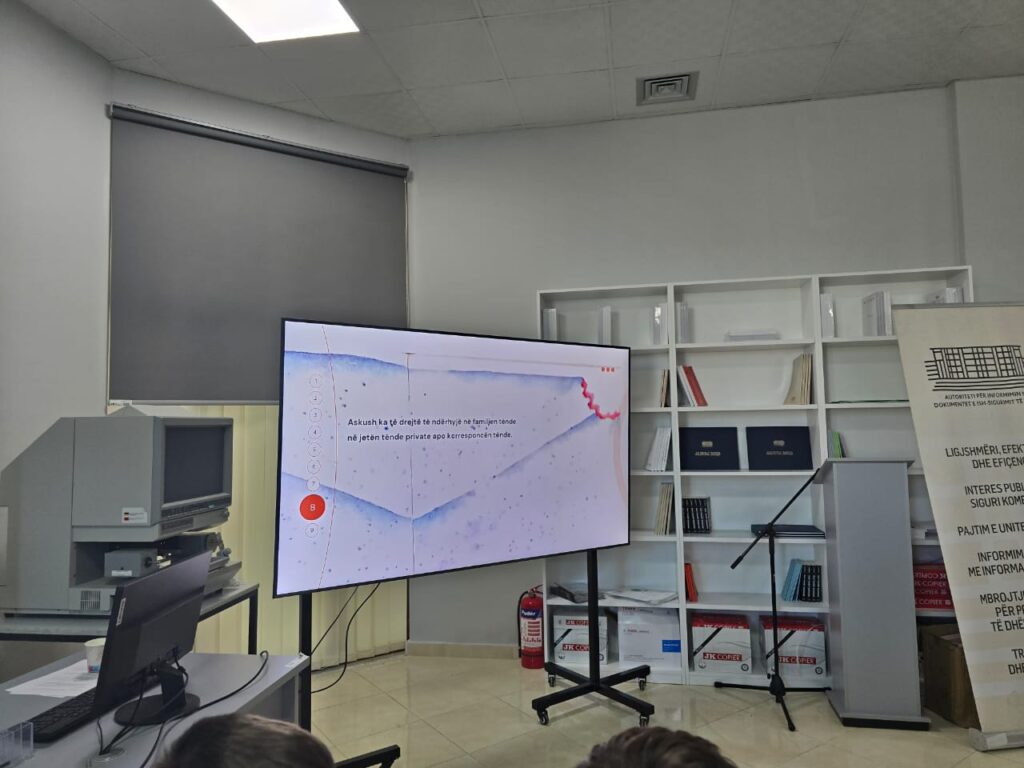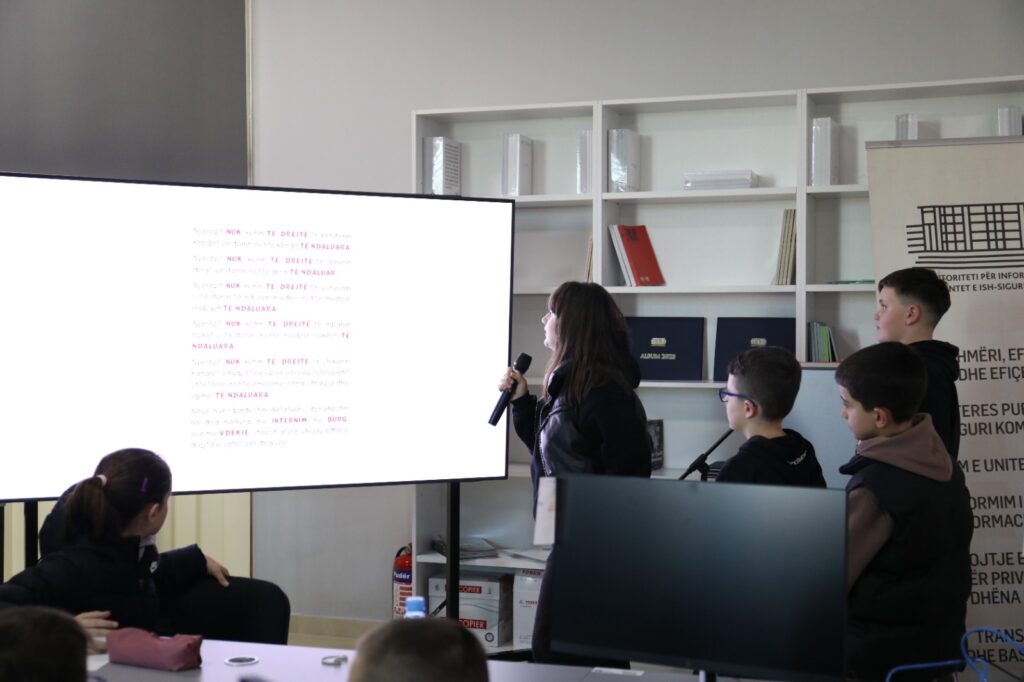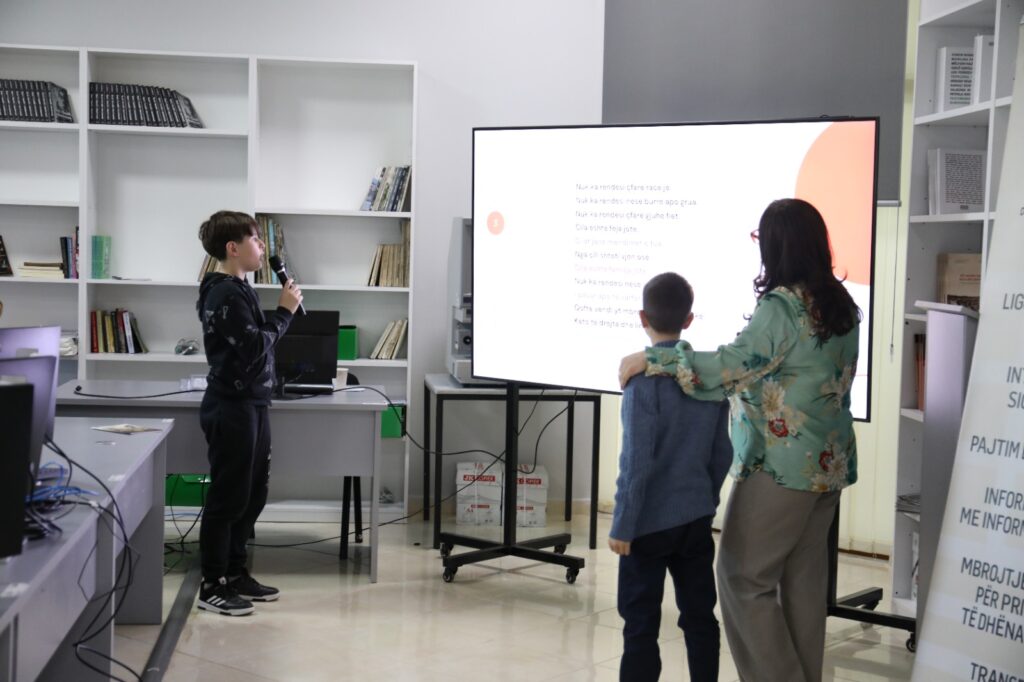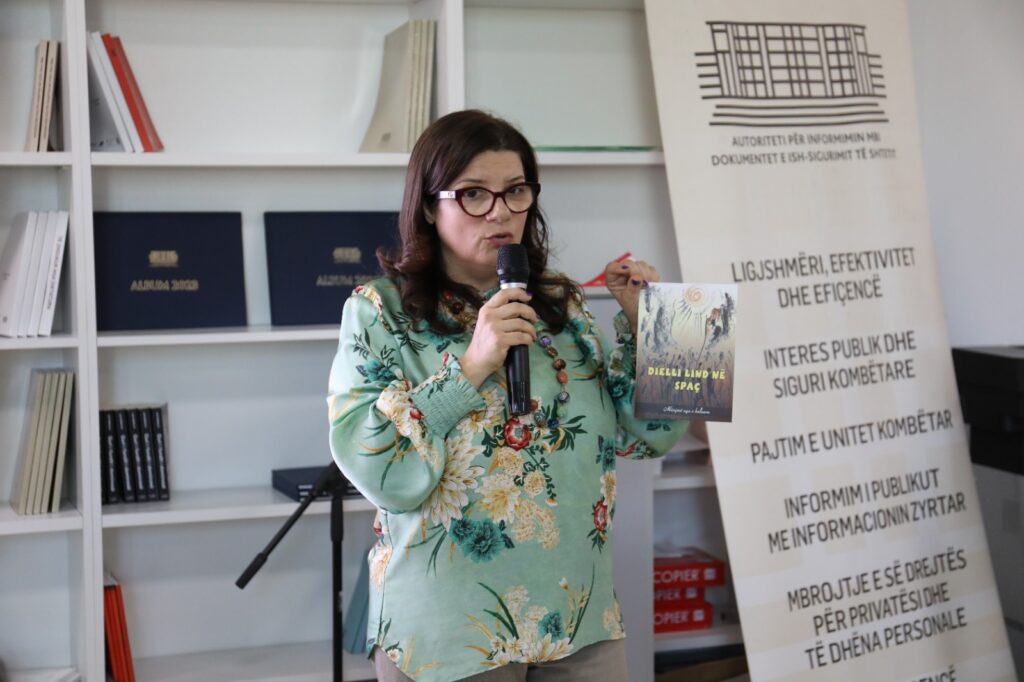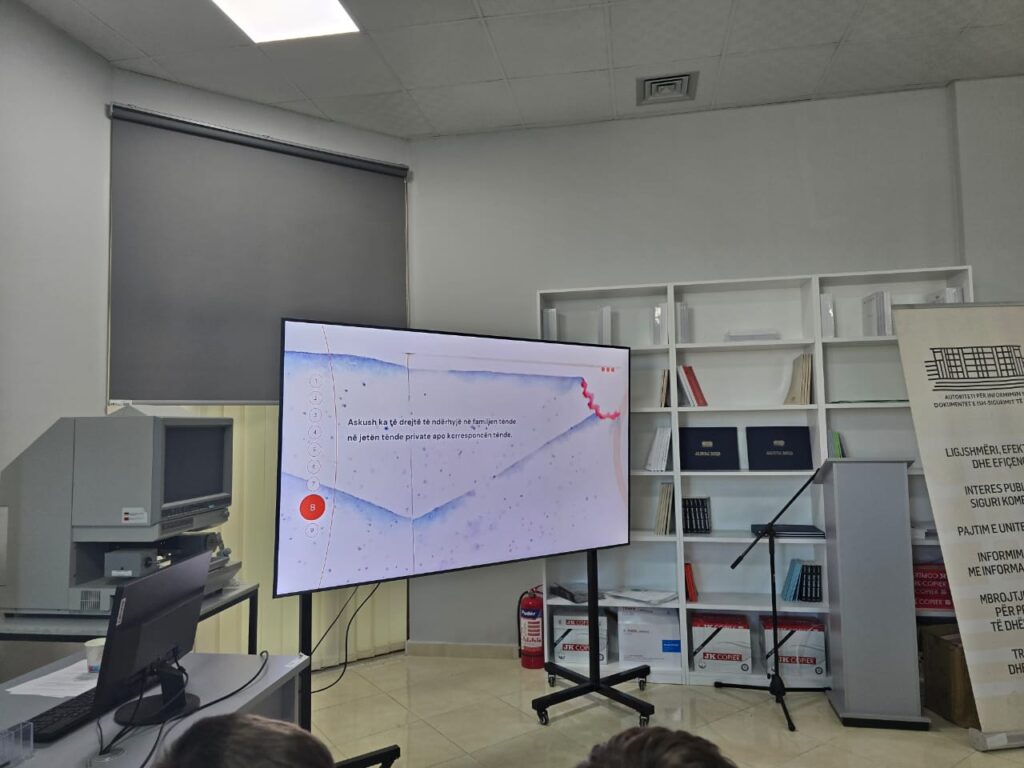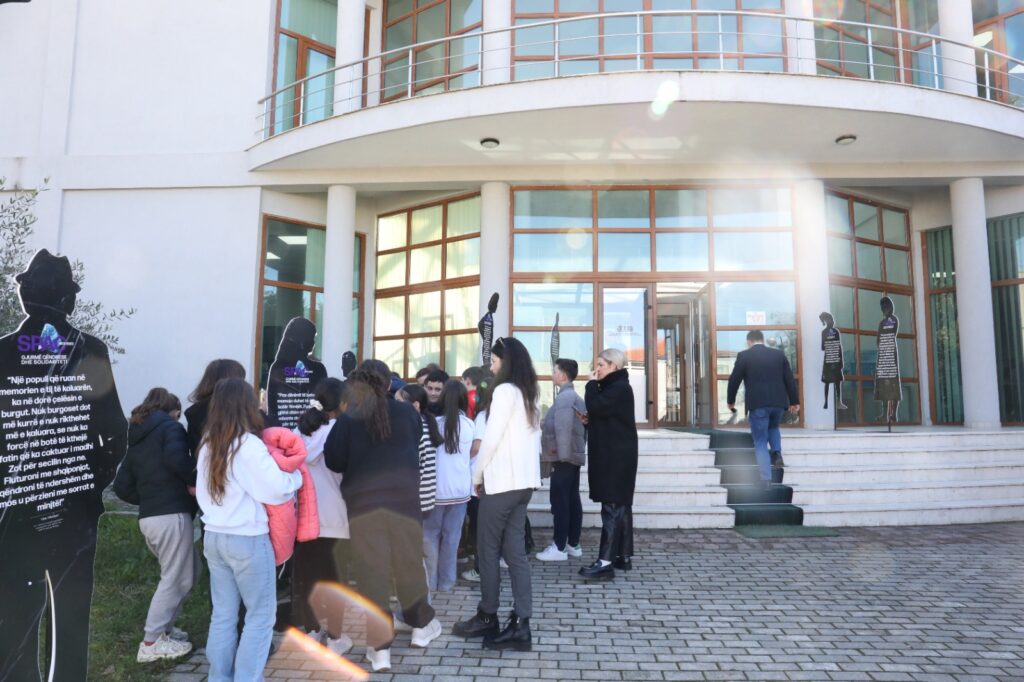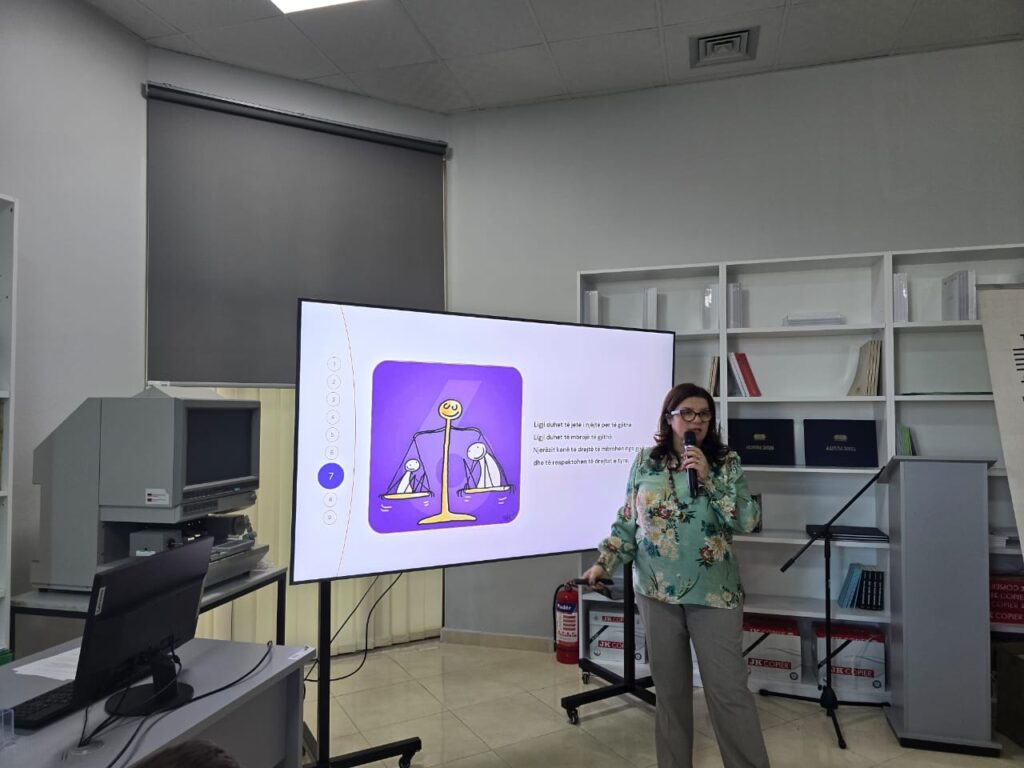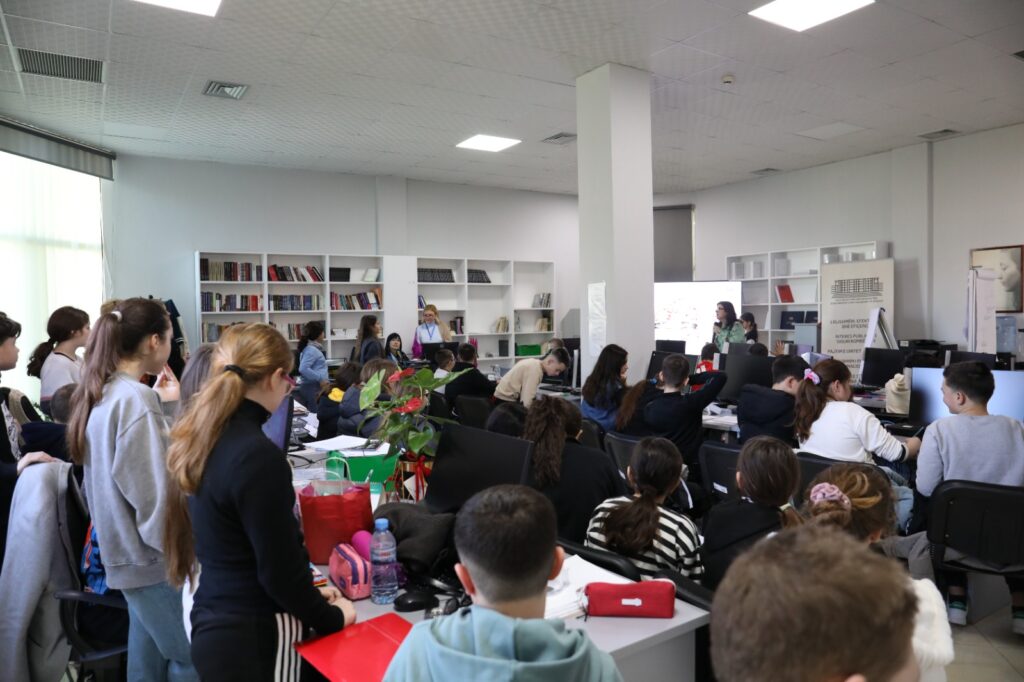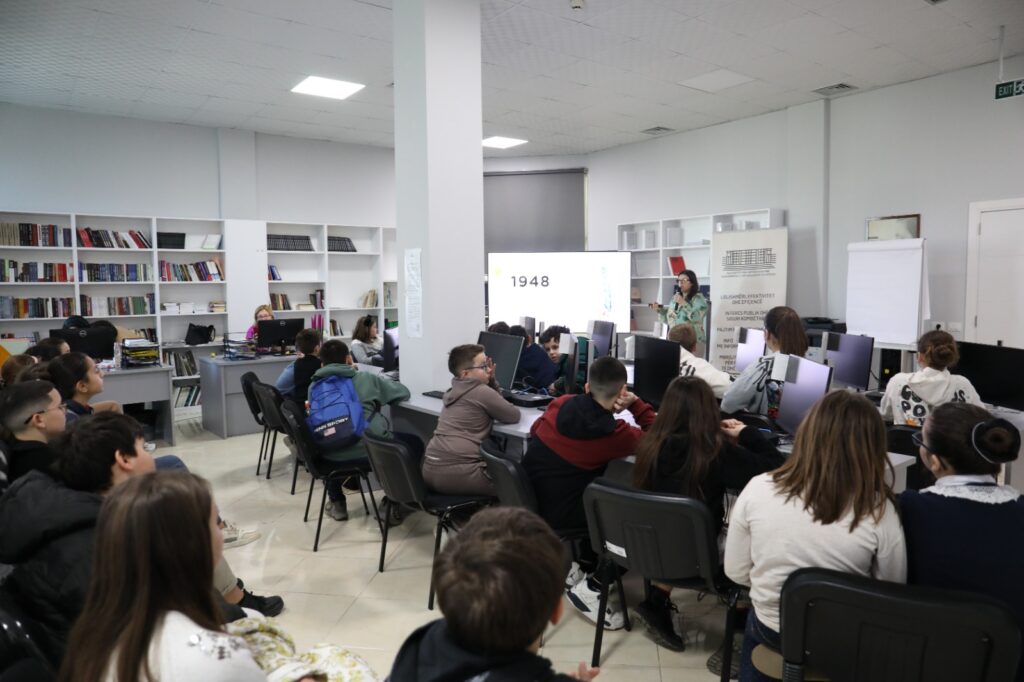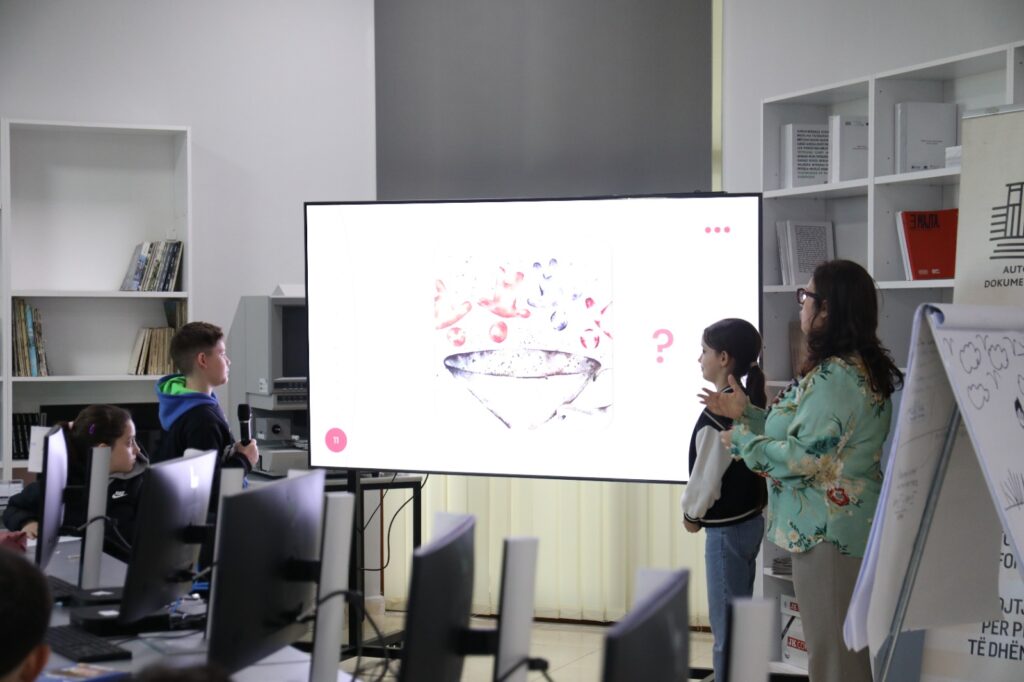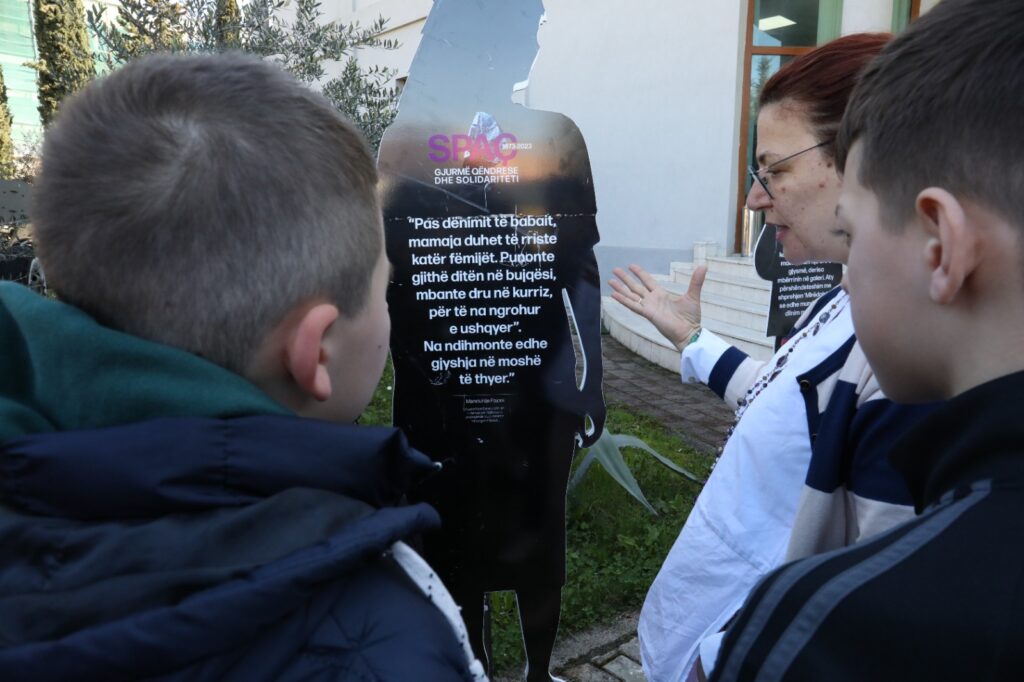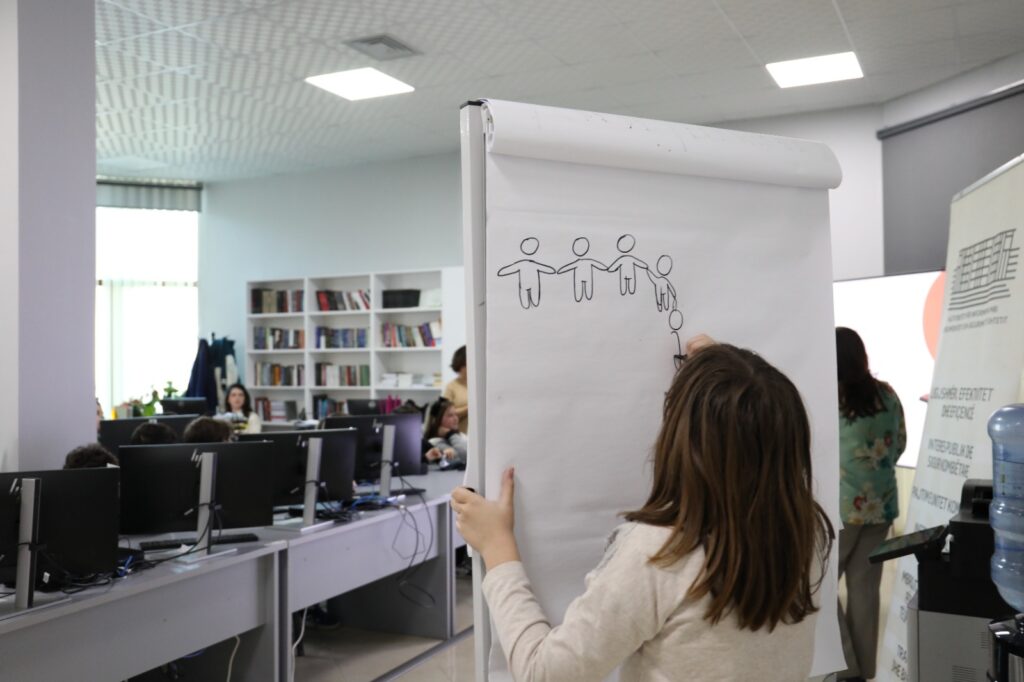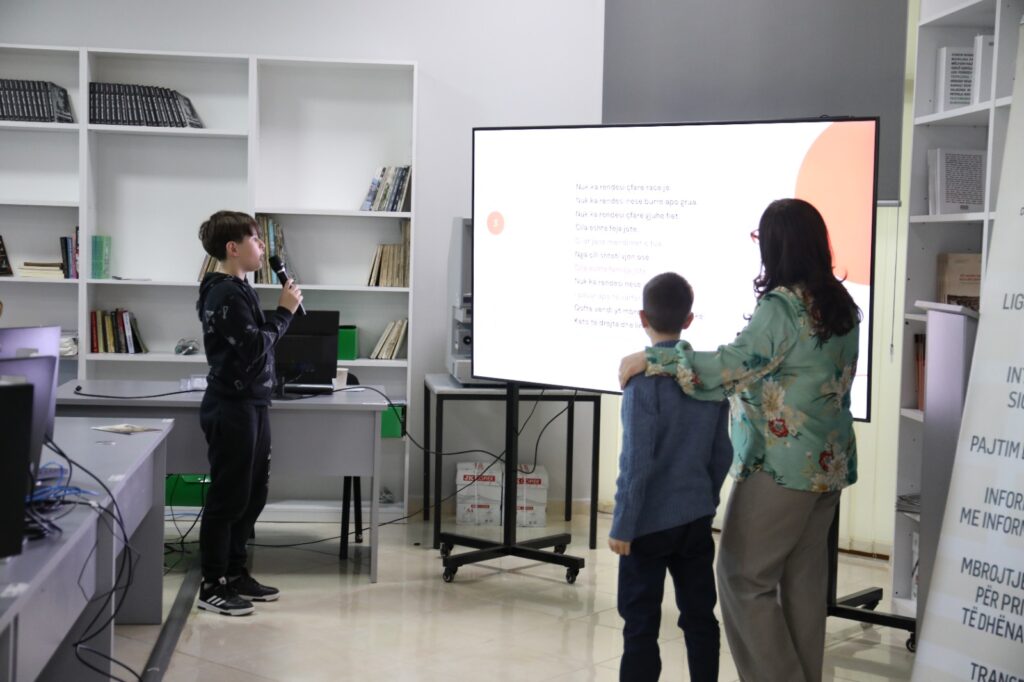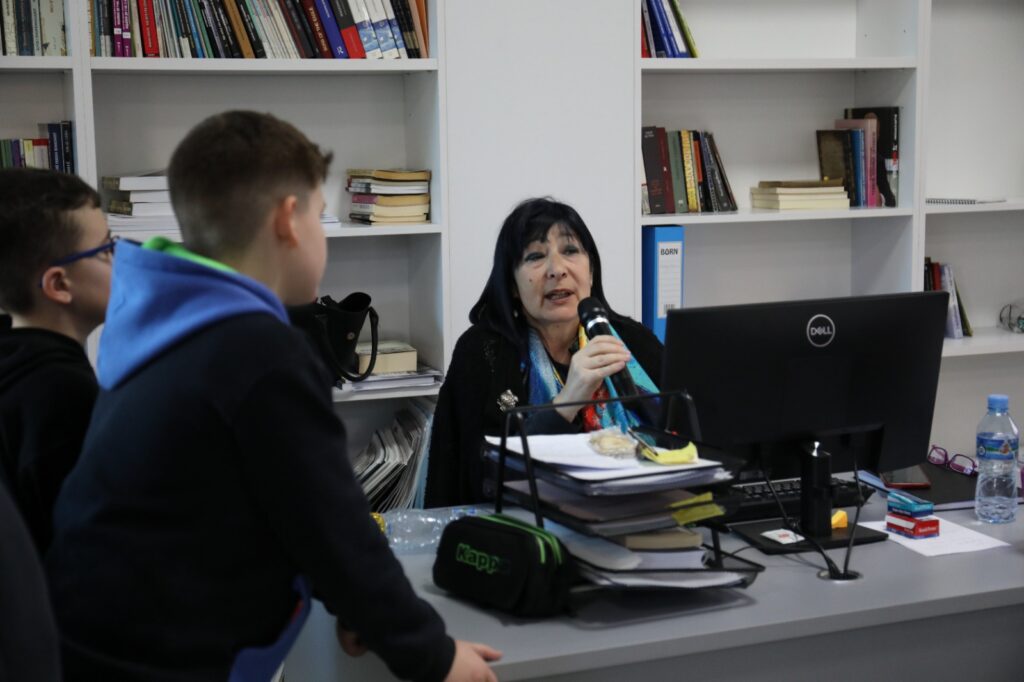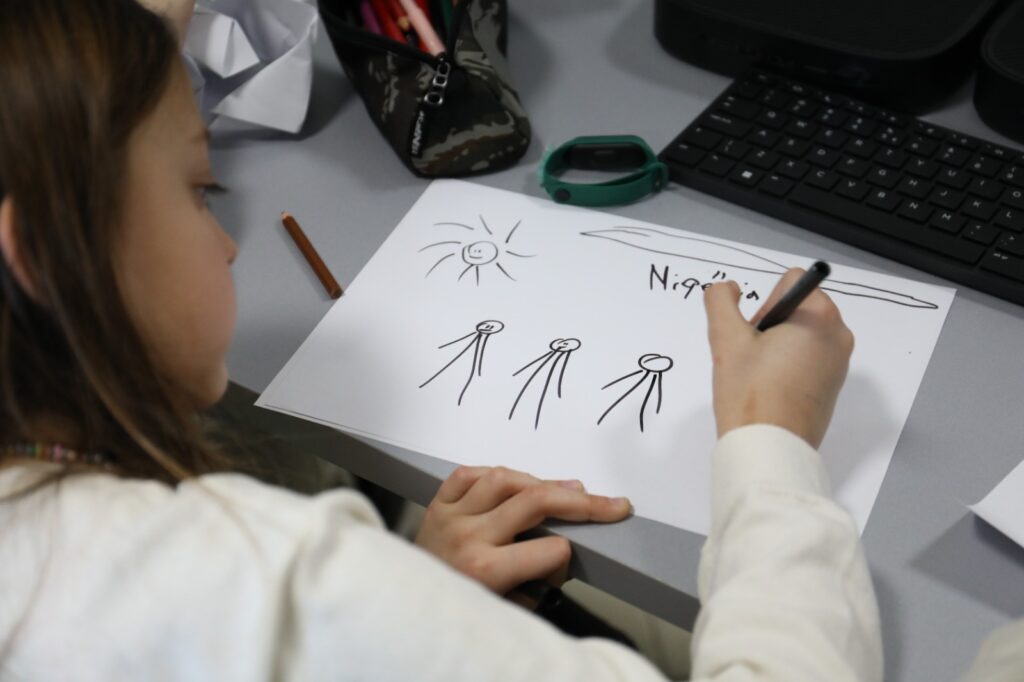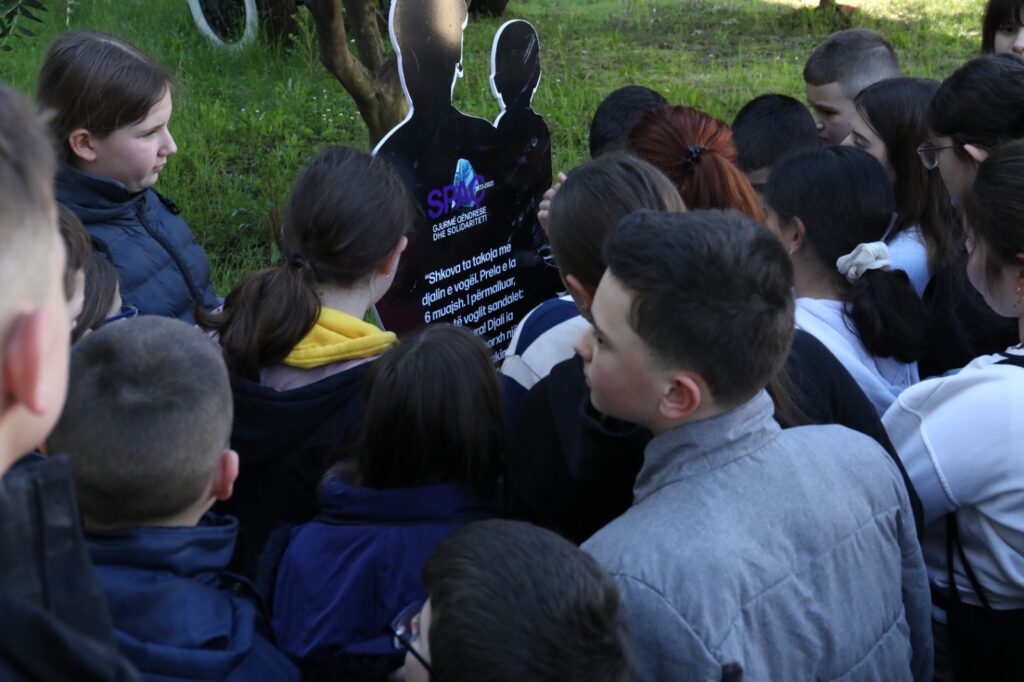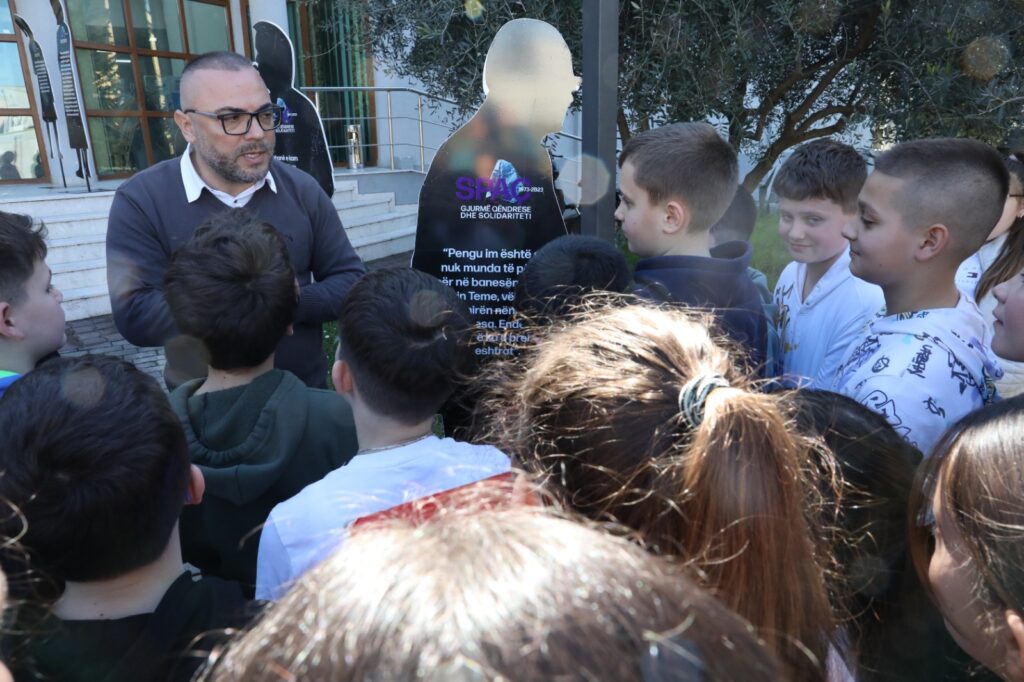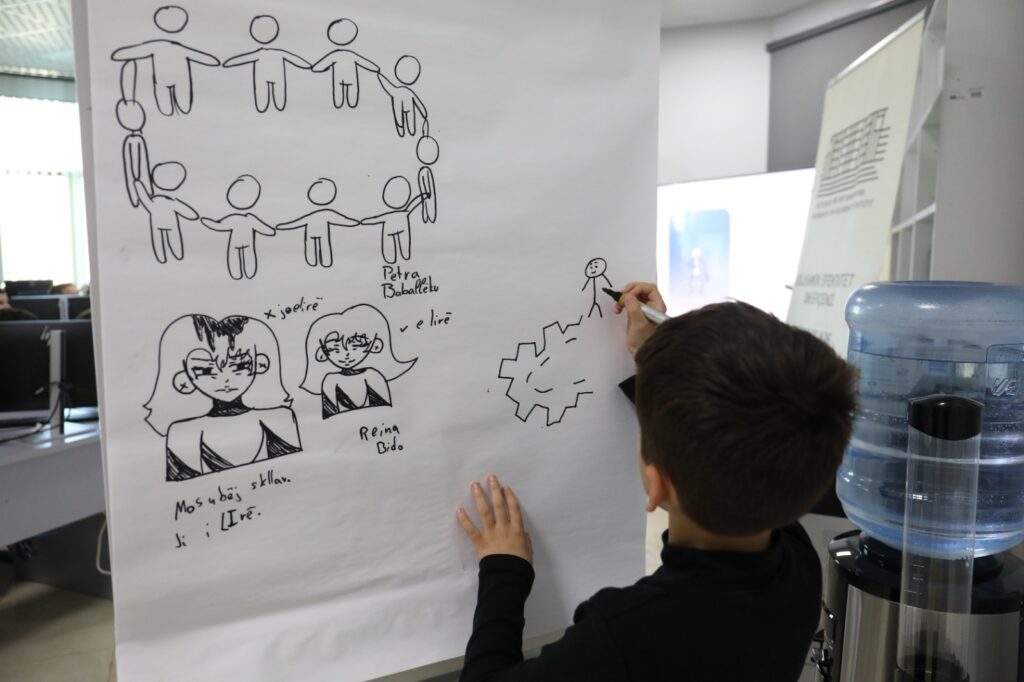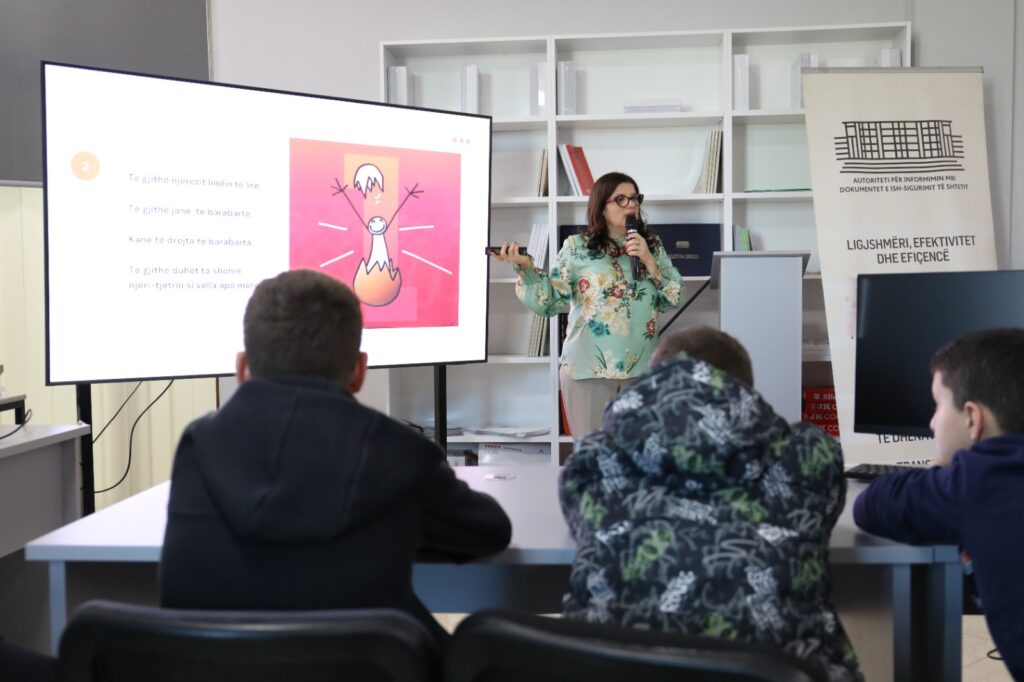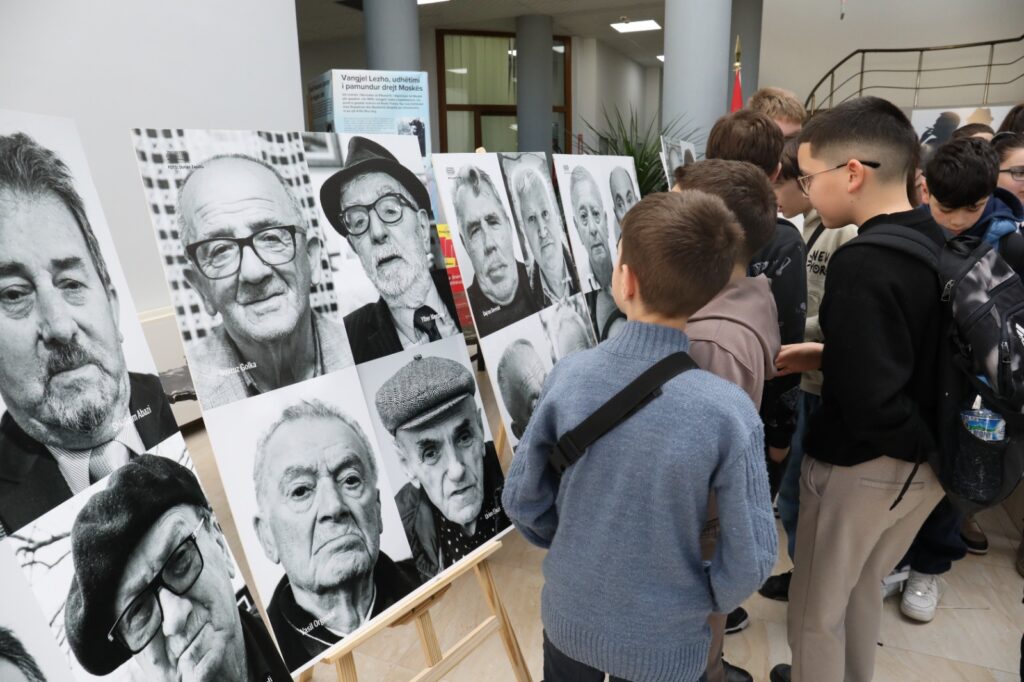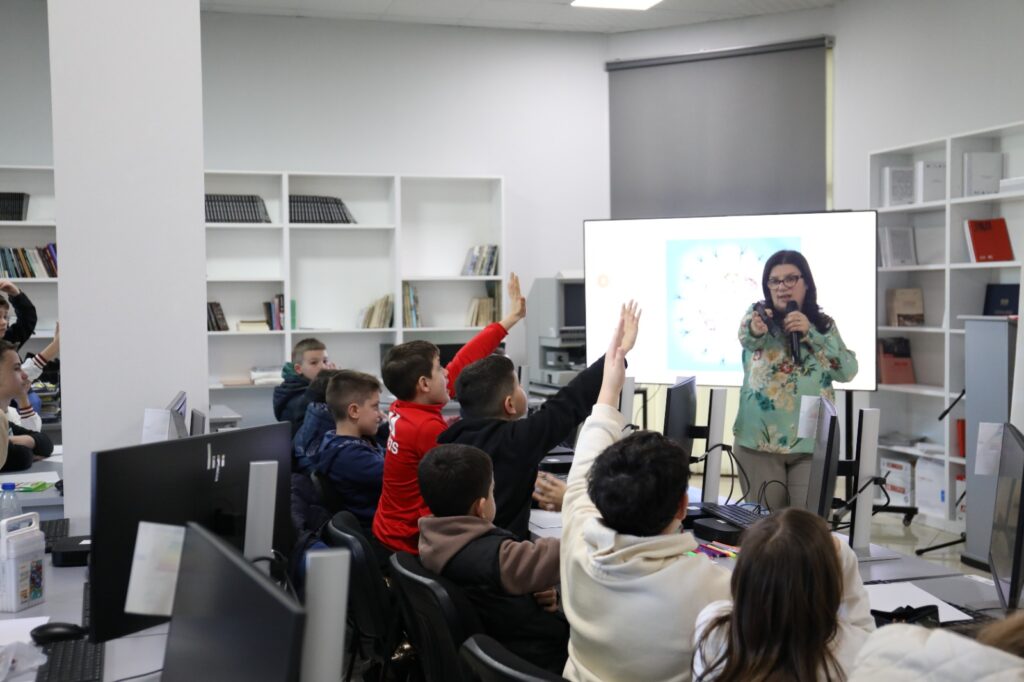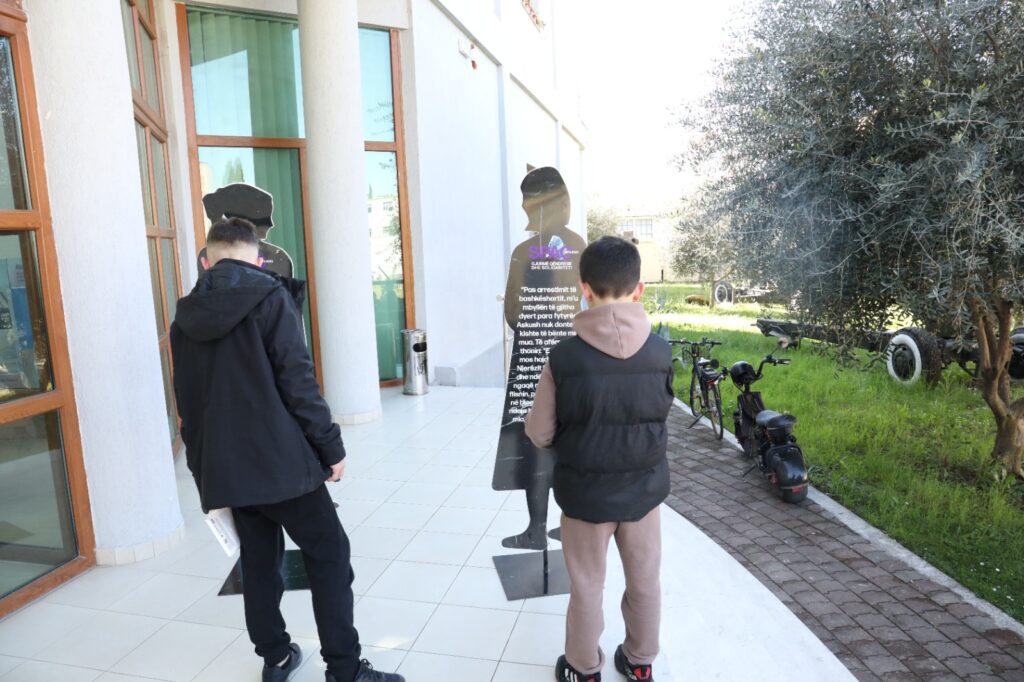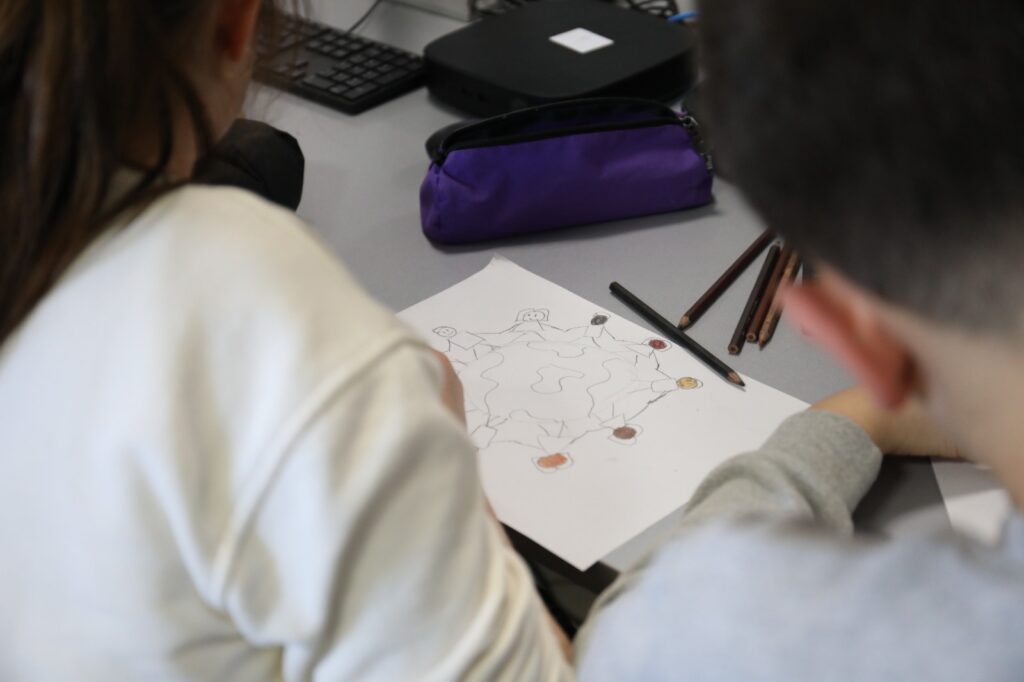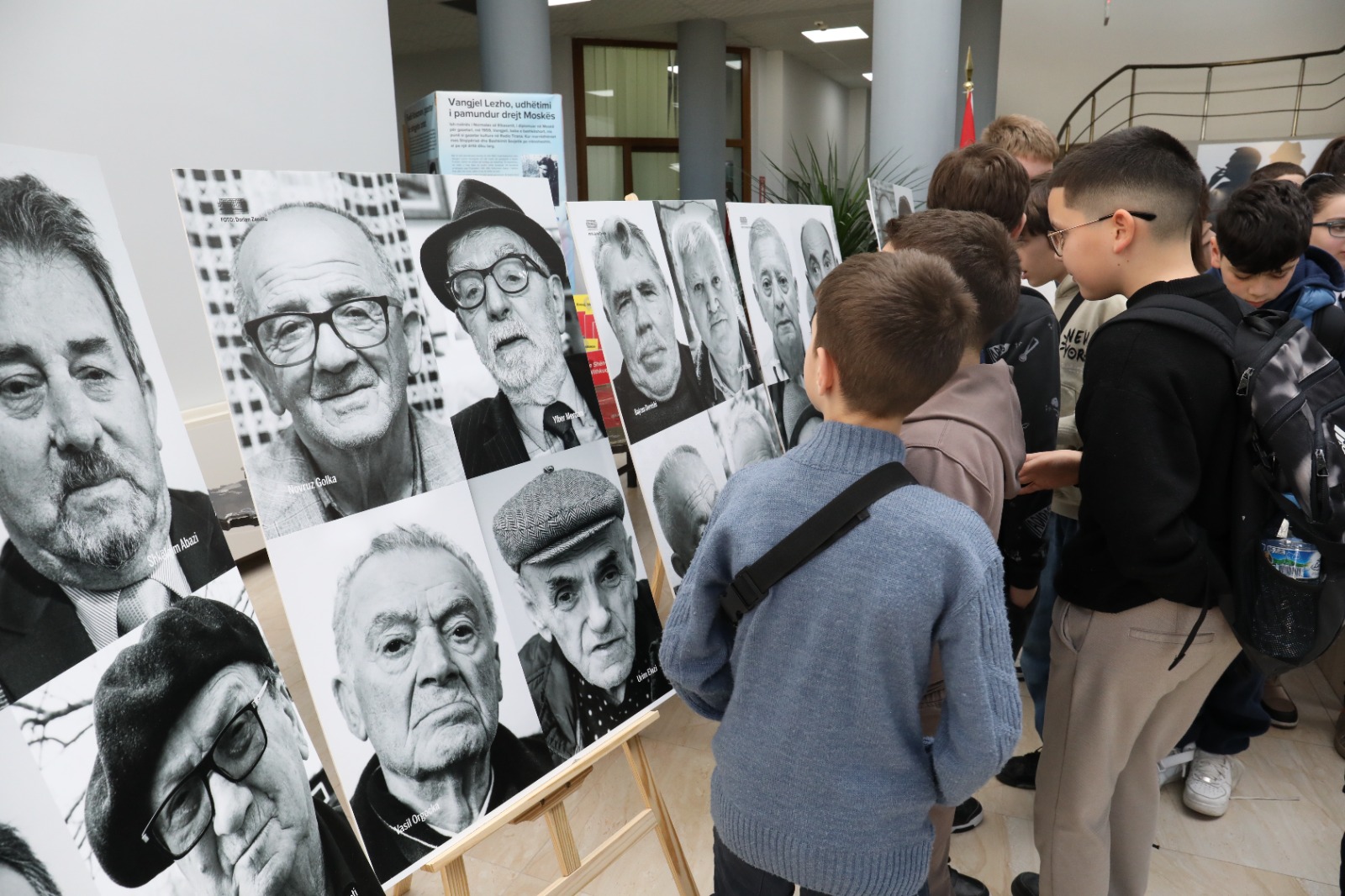Today, as part of civic education and archive visits, fifth-grade students from “Gustav Mayer” School visited the Authority for the Information on the Documents of the Former State Security (AIDSSH). During the visit, 93 students and 3 teachers had the opportunity to explore four different exhibitions displayed in the hall and entrance of the Authority’s building. The exhibitions included “Silhouettes,” “Portraits of Spaç,” “Tumos,” and the logos of Spaç, created by students from art schools.
After exploring the exhibitions, the students visited the “Musine Kokalari” library, where they attended a presentation on “Human Rights and Dictatorship,” specially prepared for their age group. The presentation explained the Universal Declaration of Human Rights and the violations of these rights during the dictatorship period in a simple way, using illustrations and easy-to-understand descriptions. The students learned about the rights to freedom of expression, thought, belief, freedom of movement, and the right to equality before the law.
After discussions on human rights, they were introduced to the ways the totalitarian regime violated these rights in Albania through excerpts from the book *The Sun Rises in Spaç*, published by AIDSSH and adapted for nine-year basic education. The students also listened to testimonies from children who had relatives in Spaç, deepening their understanding of the reality of the dictatorship and the experiences of that period.
The participants were encouraged to discuss and illustrate human rights through drawings and to engage in analyzing situations to better inform themselves. At the end of the visit, teachers were gifted a copy of the book *The Sun Rises in Spaç*, aiming to stimulate extracurricular educational projects focused on understanding the past and the values of human rights.
The children shared their thoughts through drawings and words:
“Here, I drew a girl who is free because her rights are not violated,” Reina explained.
“I drew a person who has the right to live freely. Everyone should be equal and their rights should not be violated,” said Kledi.
“I have heard about the time of the dictatorship from my family and from the television,” added another student.
This activity provided an opportunity for the students to reflect on human rights and the importance of understanding history, actively engaging them in the educational process.
